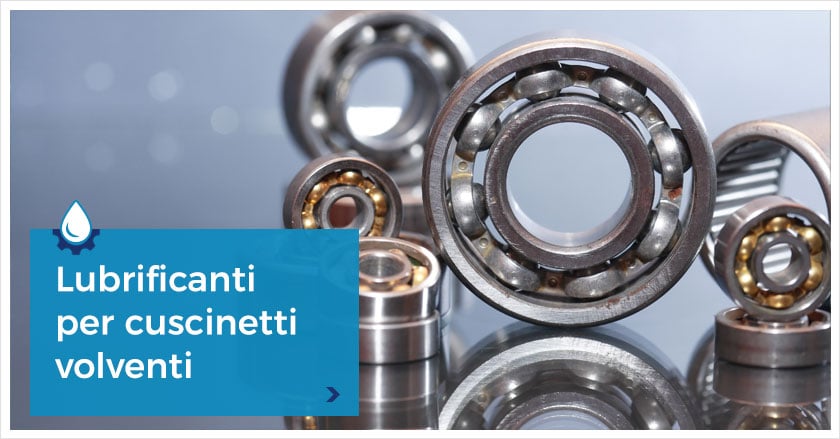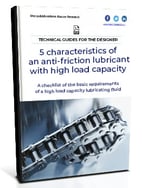
Rolling bearing lubricants
Rolling bearings require careful lubrication and filtration of the lubricating fluids, so that they do not get damaged and deteriorate over time.
A detailed analysis of the lubricant used - or that you want to use - can make a big difference to the functioning and longevity of your mechanical system. The most frequent cause of damage (and often breakage) of rolling bearings is wear, followed by other phenomena such as corrosion.
The wear of rolling bearings is a generally progressive phenomenon, which only in its advanced stage is able to lead to component failure. Bearing failure can be provoked by:
- Bad lubrication
- Excess load
- Presence of foreign particles in the lubricant
- Overheating
The rolling bearing is undoubtedly the element responsible for the transmission of the load and movement of any mechanical sector, regardless of its simple or complex structure, so its correct functioning is vital for any activity.
Rolling bearings and operating temperature
The temperature variations to which a rolling bearing is subjected can produce an instantaneous change of the lubricating film, thus compromising the correct functioning of the bearing.
How?
The heat produced during the operation of the mechanical system and present in the lubrication chamber causes a substantial thinning of the lubrication clearance, with the strong risk of breaking the lubrication film itself. This phenomenon is caused either by the evaporation loss of the base oil or by the formation of carbon residues. In both cases, the functioning of the bearing is impaired.
For this reason, correct lubrication is absolutely essential. A product created specifically for the needs of your mechanical system can make a big difference.
Our Maconsynth series, for example, was built for designers, using fully-synthetic and roller bearing specific lubricants. They are very effective and performing lubricants, both at high and low temperatures, between -90° and +300° C.
The silent operation of rolling bearings
The inhibition of the noise phenomena of the mechanical system is a fundamental aspect of the stress to which rolling bearings are subjected, especially when they operate at high rotation speeds.
Also in this case, correct lubrication can considerably reduce the noise of the component, whilst at the same time preventing possible damage due to wear - so, always use lubricants characterised by a "controlled" particle size, which can reduce the distortion frequencies that generate rotation and are particularly annoying to the human ear.
In this regard, we have developed a production system equipped with specific process phases, for the accurate control of the granulometry of the lubricating greases, with consequent effective reduction. In this way, we are able to guarantee greater safety and longevity to your components and a noise volume up to 20% lower.
For more information on how to reduce wear in rolling bearings, download the free guide on high load lubricants!
5 characteristics of an anti-friction lubricant with high load capacity
A checklist of the basic requirements of a high load capacity lubricating fluid
Heavy-duty lubricants
Complete guide to the key features

A complete identikit of a lubricating fluid with high load capacity and low friction coefficient



